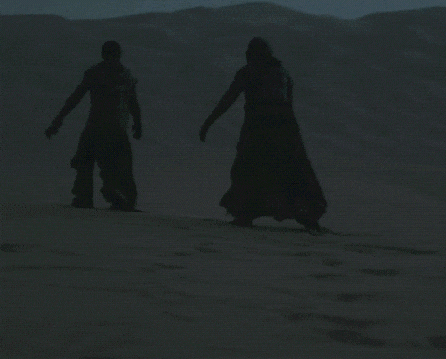A hammer?
Privacy
A place to discuss privacy and freedom in the digital world.
Privacy has become a very important issue in modern society, with companies and governments constantly abusing their power, more and more people are waking up to the importance of digital privacy.
In this community everyone is welcome to post links and discuss topics related to privacy.
Some Rules
- Posting a link to a website containing tracking isn't great, if contents of the website are behind a paywall maybe copy them into the post
- Don't promote proprietary software
- Try to keep things on topic
- If you have a question, please try searching for previous discussions, maybe it has already been answered
- Reposts are fine, but should have at least a couple of weeks in between so that the post can reach a new audience
- Be nice :)
Related communities
much thanks to @gary_host_laptop for the logo design :)
Artillery strikes on the data centers
Don't forget that when you walk the length of your bones can be measured which can be used to identify you.
I guess we can all join The Ministry of Silly Walks.
Walk on the front of your foot, the process require you to intentionally concentrate on your gait which causes it to change
Not that you can do it all of the time, but it is a way to defeat gait fingerprinting.
Walk without rhythm.

Just as normal sunglasse don't fool facial recognition systems, modern gait recognition systems can't be defeated by "just altering how you walk". You can read more about it on The Hitchhikers Guide to Online Anonymity. There is this research paper.
They link a specific device which can fool some systems, but a bit easier (although more inefficient) is just wearing very loose clothes that cover the movement of your muscles.
Yea, but there is a database of peoples faces matched to their names. There is not a database of their bone lengths to the names. That measurement would be done after you were already under suspicion.
Is that part of gait measurement or separate from it?
That depends on what gait measurement entails to you. I would think so but Wikipedia says that it is just movement analysis.
mask with dark sunglasses or a ski mask with dark sunglasses
IR LEDs around your hat or glasses but I believe some cameras can filter out IR.
Yeah, no dice, the better sensors these days don't have any problem with that. Check out Project Farms recent doorbell camera review. He actually walks up to the doorbell camera with a full on flashlight in the pitch black of night and they still have no problem.
Don't mind me, just rocking my battery-powered hat
It’s to power the AI obviously 😂
For surveillance cams:
Cover them up and destroy them with drones.
Mask or neck gator, dark shades, toboggan hat or head scarf/wrap that covers your ears. Ears are just about as identifiable as fingerprints.
Long hair also.
You mean, a solution against CCTV, right? RIGHT?
I asked Andi
Recent advances in facial recognition technology have sparked development of various counter-surveillance clothing and accessories. These anti-surveillance methods fall into several key categories:
Physical Alterations and Clothing
- Patterned clothing with complex designs that confuse facial recognition algorithms[^4]
- Reflective materials that bounce back infrared light used by security cameras[^4]
- Special scarves and hoodies designed to break up facial features[^4]
- The "Camera Shy Hoodie" with embedded IR LEDs that overexpose security camera footage[^14]
- Cap_Able brand clothing with patterns designed to deceive recognition systems[^16]
Technical Solutions
- Infrared LED glasses that blind facial recognition cameras while remaining invisible to human eyes[^4]
- Anti-surveillance devices that emit signals to interfere with camera sensors[^4]
- Reflectacles privacy eyewear that blocks IR cameras[^8]
Professional Applications
- Small reflective dot stickers used for motion tracking and high-speed camera detection[^1]
- Camera obscura techniques used by photographers and artists[^11]
Law Enforcement Concerns
- Police forces are expanding use of facial recognition vans and technology[^7][^13]
- Civil liberties groups argue the technology shows racial bias and privacy concerns[^9]
- West Yorkshire's Crime Commissioner states that facial recognition data "will not be stored"[^7]
Sources:
[^1]: Amazon - Golf Club & Golf Ball Reflective Dot Stickers [^4]: Luxand - How to Fool and Avoid Facial Recognition in Public Places [^7]: BBC - 'Facial recognition can make mistakes, it's not a decision-maker' [^8]: Reflectacles - Ghost Privacy Eyewear & Sunglasses [^9]: Yahoo/Telegraph - Facial recognition cameras at Notting Hill Carnival 'are racially biased' [^11]: Wikipedia - Camera obscura [^13]: Facebook - Digital face recognition camera van in Albany Rd [^14]: Mac Pierce - The Camera Shy Hoodie [^16]: Maker Faire Rome - Fabric to deceive facial recognition systems
As an unrelated question, why do you use Andi instead of other privacy centric AI such as Duck.ai, Lumo, Brave AI, etc? I'm not familiar with Andi so I'm curious.
Because Andi is until now the most privacy centric and reliable one of all I've tested since almost 3 years, it was the first ever search AI on the market, 5 Years ago, former called Lazyweb.ai, years before. Own LLM not biased by big companies. Developed by a small startup of 2 devs.
....We're a small team of two founders (Angela and Jed) and some friends. We're on a mission to unbreak the Internet and save the world from spam, misinformation and ad tech.
Search is broken because of misinformation, SEO spam and ads, and surveillance capitalism. It hasn't changed in 20 years. Things are getting worse. The rise of GPT-based chatbots that confidently generate accurate-sounding "BS" with made-up sources is driving misinformation through the roof.
